News
-
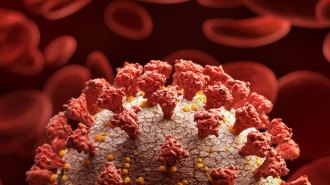 Health & Medicine
Health & MedicineThe U.K. approved the world’s first COVID-19 human challenge trial
Dozens of young, healthy volunteers will be deliberately exposed to the coronavirus to find out how much virus it takes to get someone sick.
-
 Health & Medicine
Health & MedicineThe COVID-19 death toll sent U.S. life expectancy plunging in 2020
Estimates show that American’s overall life expectancy declined by a year, but for Black Americans, the drop was almost three years.
-
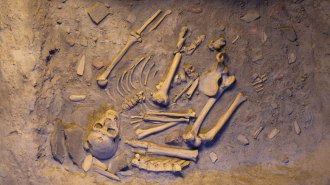 Health & Medicine
Health & MedicineSome Neandertal genes in people today may protect against severe COVID-19
Neandertal DNA on chromosome 12 may affect genes involved in a biochemical chain reaction that ends with the destruction of viral RNA.
-
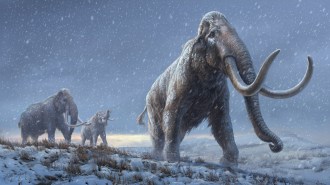 Genetics
GeneticsThe oldest animal DNA ever recovered reveals mammoths’ evolution
Mammoths evolved to handle the cold over hundreds of thousands of years and North America may been home to a hybrid species, a new study finds.
-
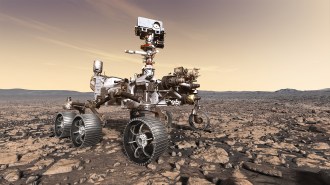 Planetary Science
Planetary ScienceNASA’s Perseverance rover has touched down on Mars
The spacecraft will arrive at Mars on February 18, joining missions from China and the United Arab Emirates.
-
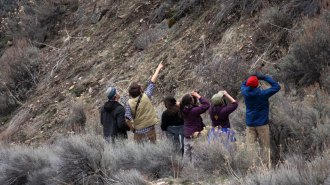 Animals
AnimalsA rare bird sighting doesn’t lead to seeing more kinds of rare birds
The idea that more kinds of rare birds are seen when birders flock to where one has been seen, the so-called Patagonia Picnic Table Effect, is a myth.
-
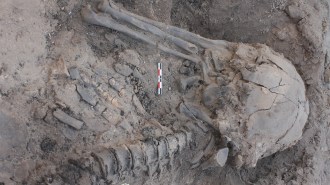 Anthropology
AnthropologyA body burned inside a hut 20,000 years ago signaled shifting views of death
Ancient hunter-gatherers burned a hut in which they had placed a dead woman, suggesting a change in how death was viewed.
By Bruce Bower -
 Plants
PlantsModified genes can distort wild cotton’s interactions with insects
In a Yucatan nature park, engineered genes influence nectar production, affecting ants’ and maybe pollinators’ attraction to the wild cotton plants.
-
 Psychology
PsychologyIn the social distancing era, boredom may pose a public health threat
Boredom contributes to pandemic fatigue and may account for why some people don’t follow social distancing rules.
By Sujata Gupta -
 Health & Medicine
Health & MedicinePfizer’s vaccine appears to reduce coronavirus transmission
People who carry low amounts of the coronavirus in their bodies are less likely to spread COVID-19. Pfizer’s shot appears to help reduce viral loads.
-
 Physics
PhysicsTiny, sunlight-powered aircraft could soar beyond airplanes’ reach
Microfliers levitate when hit with light, in conditions like those high in Earth’s atmosphere.
-
 Health & Medicine
Health & MedicineMaking masks fit better can reduce coronavirus exposure by 96 percent
Double masking, rubber bands and other hacks can produce a tighter fit and prevent aerosol particles that can carry coronavirus from getting through.